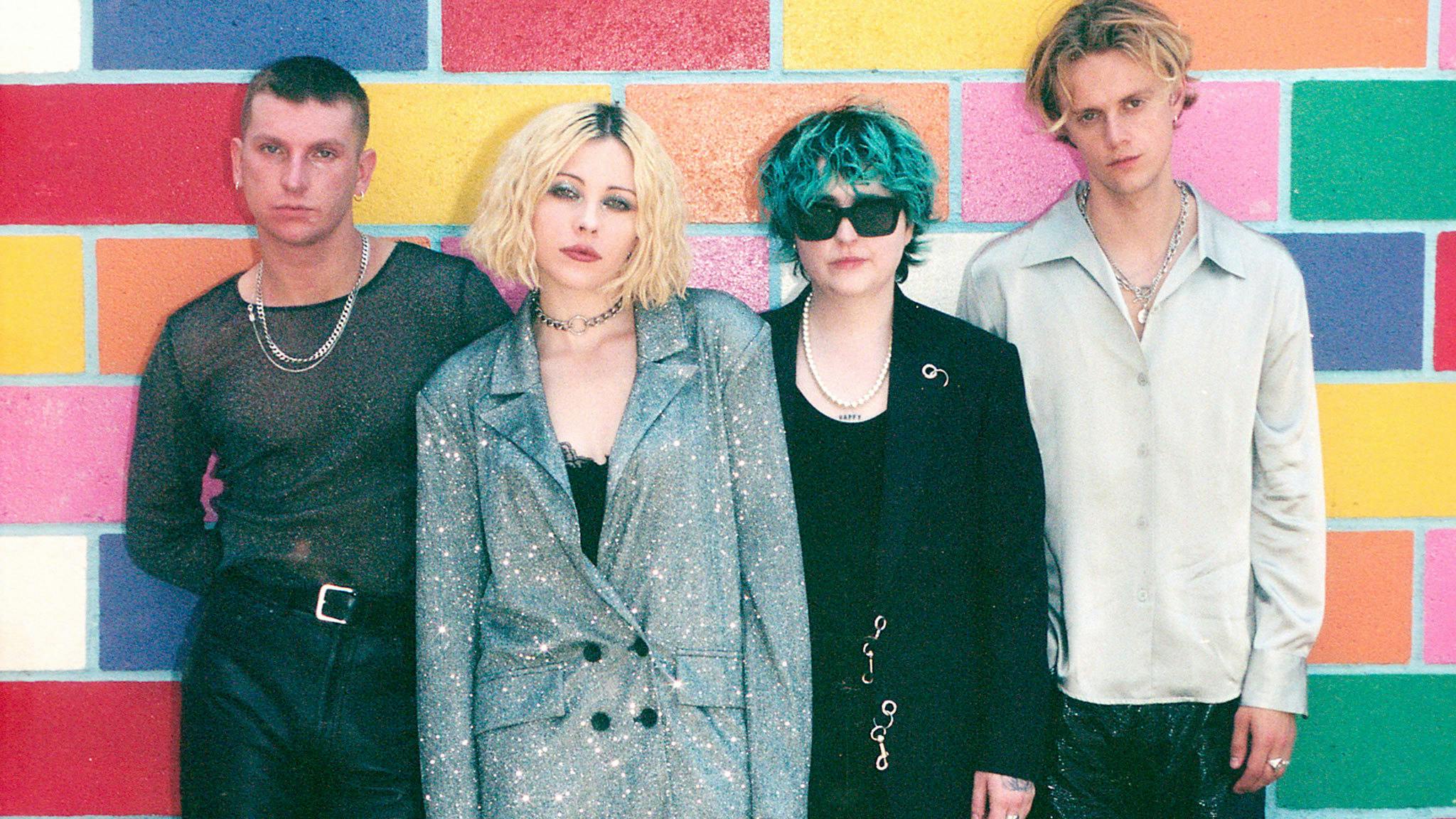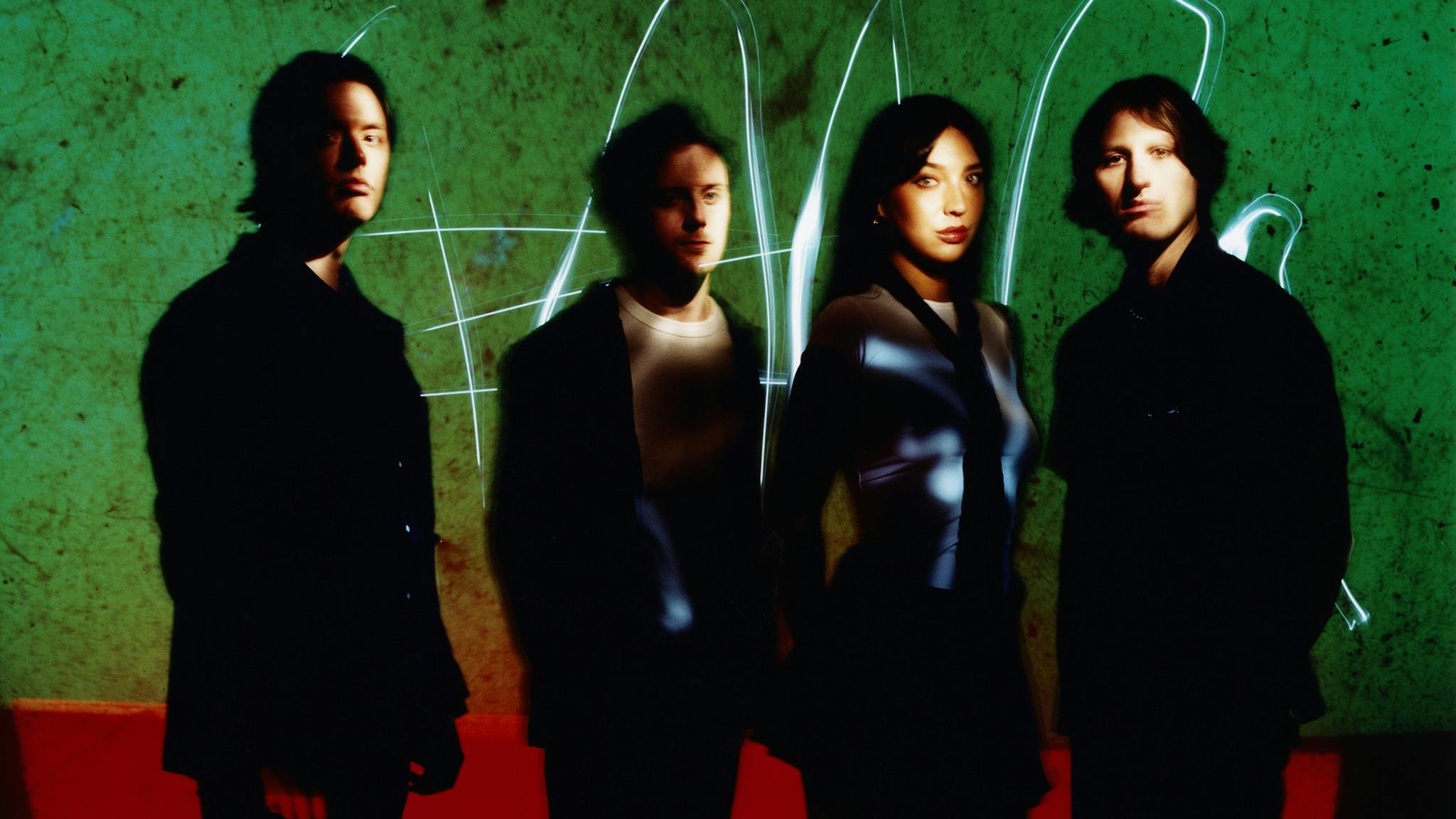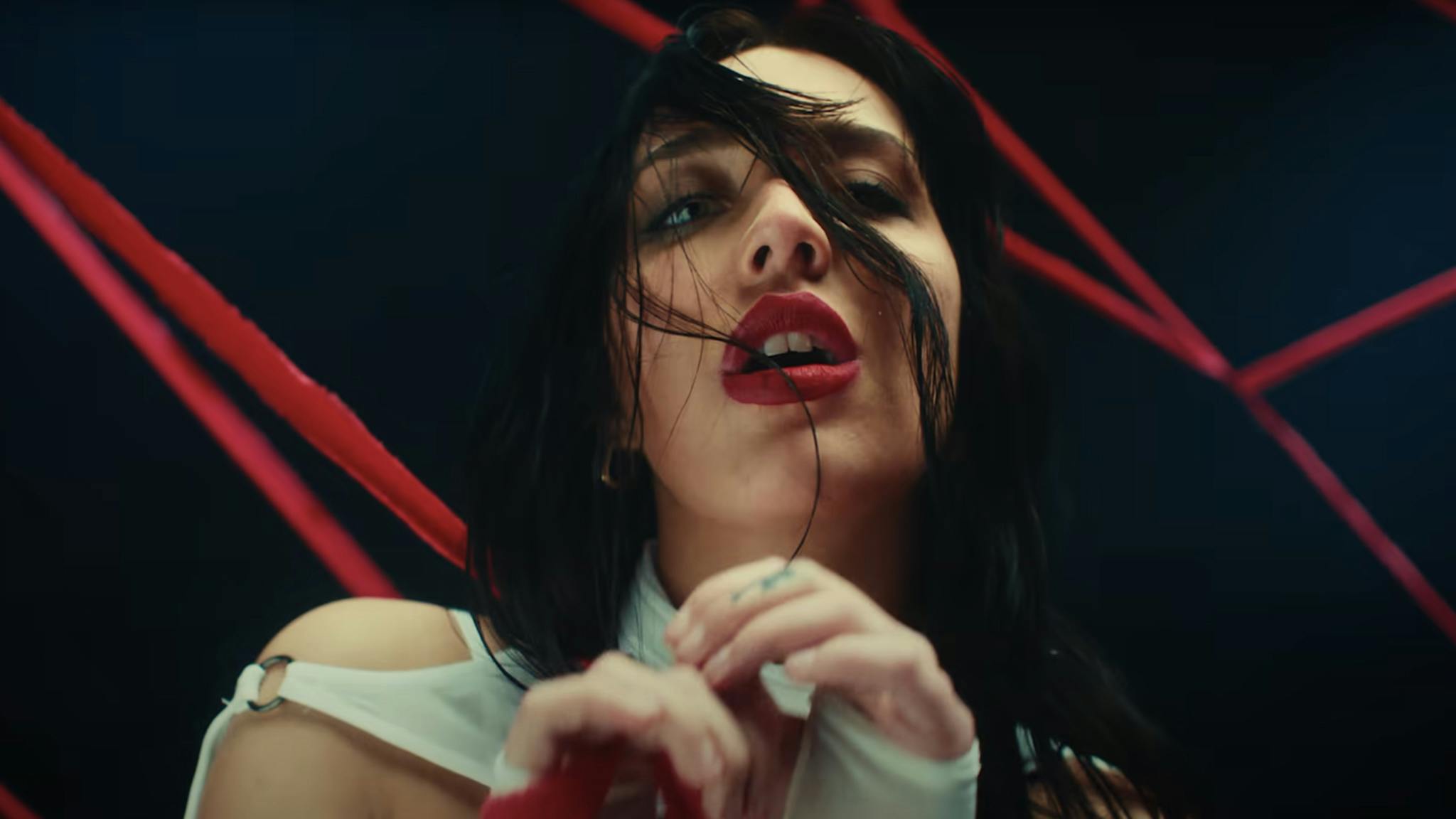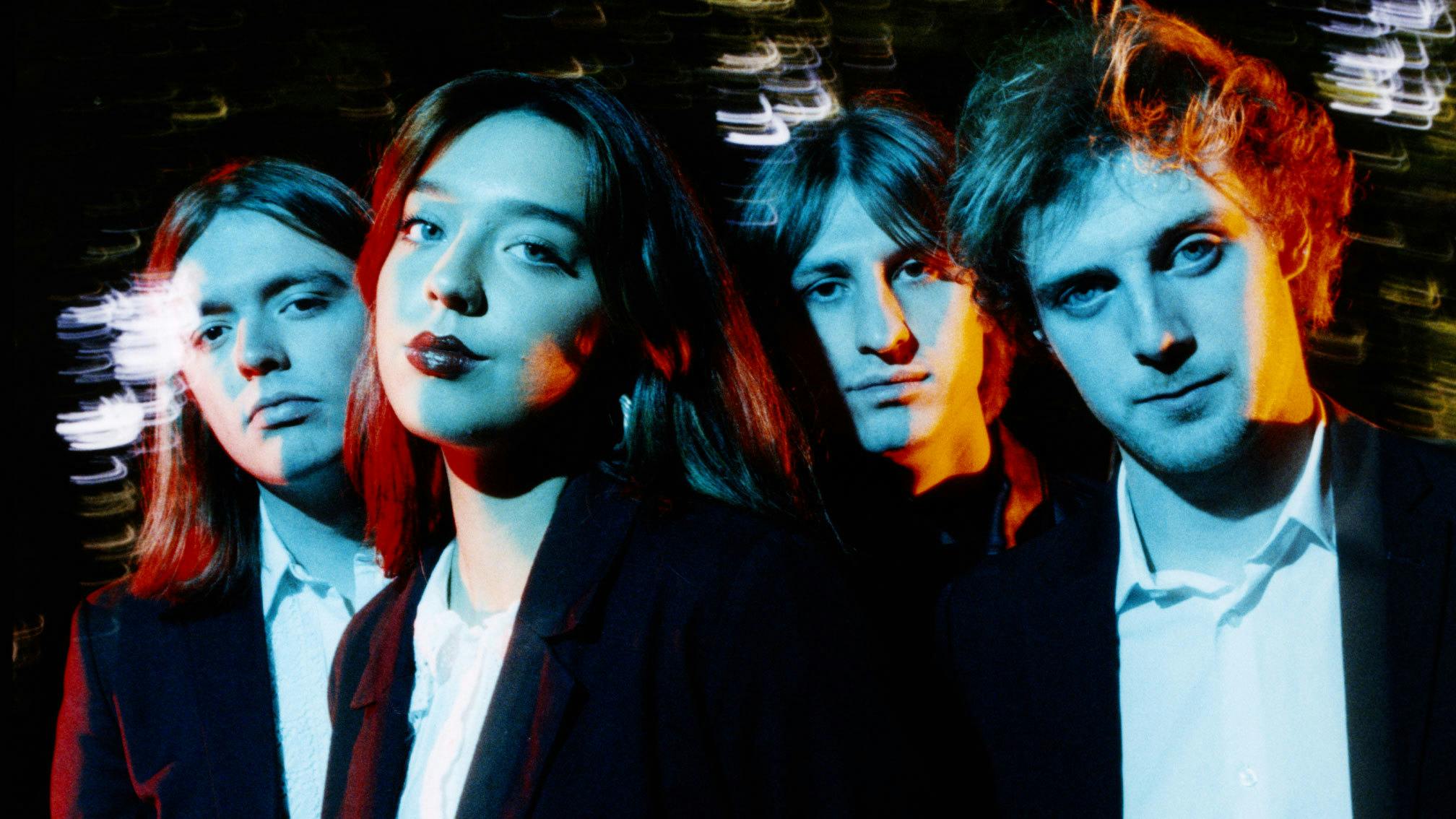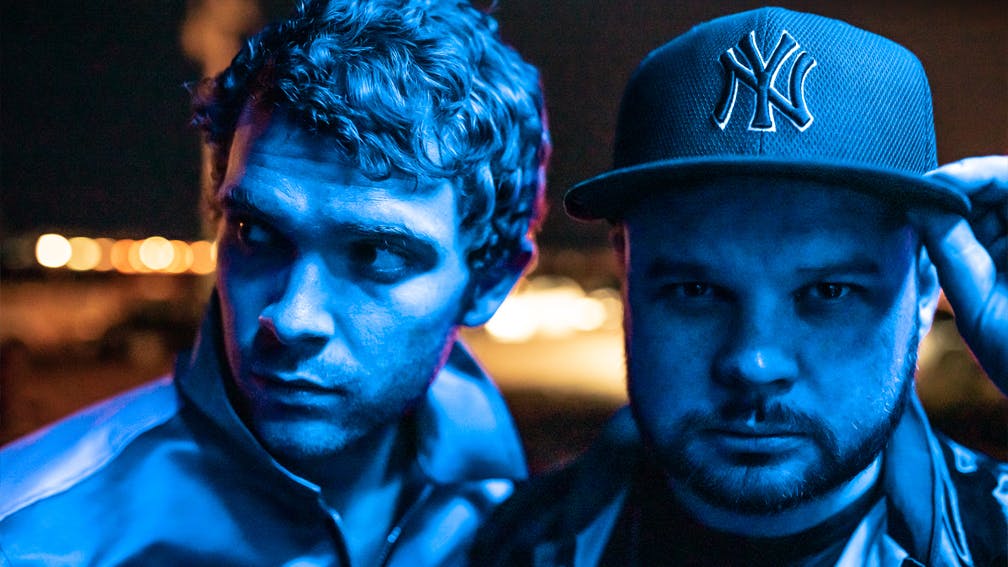Was Hawkmoon the first song written for the record, then?
Paul: “I think Hawkmoon was written in the summer of 2022, so not long [after] Reeling was released. I had the chords, and I realised that sometimes it was quite good to be a bit secretive about things in the process. I just played the chords in front of Lia, to see whether she'd go, ‘What's that?', or if she just wouldn't say anything, so I would know whether it was shit. Hawkmoon just felt different, like it was the start of a new sound for us. If you listen to Reeling and then you listen to Hawkmoon, it's worlds apart. Even down to the way Lia is singing, it was a conscious thing to explore Lia's voice a little bit more. Naturally, you would want to overperform it, when actually, the best way of doing it is to keep it as raw and intimate as possible.”
Lia: “Me and Paul went on a few writing trips, and spent five days in the middle of nowhere, pretty isolated. Some of it slowly revealed [itself] to us, which sort of path to take. From the very beginning, we did want the writing process to be quite immersive. We enjoyed doing it in that way... it's not like there was much of a plan, to be honest. It became exciting, apprehending your own creative journey and not knowing what's going to happen next.”
How did such an open-minded approach translate into a fully-fledged album?
Lia: “It was almost like a mosaic way of songwriting. It slowly pieced together, and parts revealed themselves sooner than other parts. Once you have all the pieces, the mosaic shows itself to you. We got to start from scratch and not do what we're comfortable with, what we [knew]. I think that's how you get the best out of any creative situation, really – by not doing the thing that you should do.”
Was it a smooth transition, entering this headspace and pushing yourself further?
Lia: “I think we felt a bit more compelled to express ourselves and push what we were comfortable with, creatively. It was a bit more exploratory, and it wasn't as ‘by the book’ as Reeling. A lot of that album was pretty much done on an acoustic guitar, really. [For every record], you shouldn't be in the same place, or creative headspace, I suppose.”





